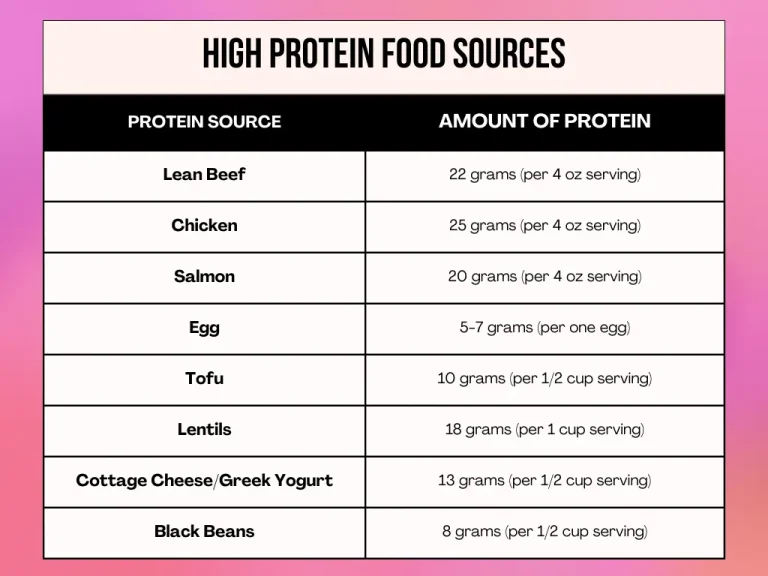
Bringing a beautiful new life into the world is a joy like no other, but it often comes with a host of changes to your body. Losing weight after baby number 2 can be particularly challenging, as you have less time and more responsibility than the first time around.
The truth of the matter is: there’s no one size fits all when it comes to weight loss. Everyone’s journey will be different, and some strategies might work for some but not for others.
That being said, this post will explore evidence-based strategies for long-term, successful postpartum weight loss.
Strategies for Losing Weight After Baby #2
If you’re looking for quick, short-term weight loss strategies this might not be the post for you.
If you want to lose the weight after your second baby, and keep it off long-term – it’s important to understand that it might take time. Depending on many factors, it could even possibly take a year or more!
Losing weight is no joke while juggling two kids! On the other hand, it’s almost like you’re so busy you don’t have time to make yourself meals.
So let’s explore a few different options so that you can figure out what might work for you and your lifestyle.
Consistency is Key
First and foremost, consistency is key. You don’t have to workout everyday, starve yourself, or give up all your favorite foods to experience long-term weight loss.
Working out and eating healthy, of course, makes a huge difference. However, it’s not about perfection – it’s about relentless consistency.
Studies have shown that building and maintaining healthy eating habits can help people lose weight more consistently, even if it’s at a slower pace (1).
In summary- don’t give up if you’re not seeing quick results! Select weight loss strategies that are realistic, and that you can sustain for a lifetime.
Eat Well-Balanced, High Protein Meals

It’s important to eat at least three high-protein meals daily. Protein is the macronutrient which takes the longest to digest, thus, keeping us fuller for a longer period of time.
It has been shown to help with weight management – and prevent weight regain after loss!
Including at least 20-30 grams of protein at each meal may prevent mindless snacking throughout the day, therefore, decreasing your overall caloric intake (2). By ensuring we are consuming enough protein while restricting calories, we can preserve lean muscle mass – which helps increase energy expenditure.
There are simple ways to increase your protein intake, like adding nutritional yeast to soups or cottage cheese to certain dishes.
For High Protein Resources:
— 120 Grams of Protein Meal Plans
— Healthy, High Protein Breastfeeding Snacks
— Easy Breakfasts with 30 Grams of Protein
Practice Mindful Nutrition

Mindful nutrition is the act of paying attention to our food, on purpose, moment by moment, without judgment. It is quickly becoming a recommended way of changing peoples’ eating behavior with food.
Some studies have shown that mindful eating could be a practical approach to weight control (4, 5).
Further, eating mindfully helps identify and eliminate emotional eating by teaching us how to recognize our hunger and fullness cues.
If you’re someone who turns to food when you’re bored, lonely, or sad – learning how to practice mindful nutrition could be beneficial to you.
Add More, Restrict Less

If you’ve been trying to restrict calories but find that you’re just not satisfied after each meal – trying adding more instead of restricting. By selecting foods that are lower in energy density, a meal can appear much larger while still being low in calories.
This strategy assists with increased satisfaction after a meal. Research studies have shown that consuming a large volume of low-density foods, such as soup, salad or fruit can enhance the feeling of fullness and lead to overall decreased energy intake (6).
Some examples of low calorie, high volume meals are large salads, soups, a cauliflower rice bowl, or power bowls.
Meal Prep and Planning

It’s no secret that eating home-cooked meals are healthier than eating out. With a bit of preparation and planning, you might find that you’re opting for less processed and convenience foods.
Low calorie, high protein meal prep can help to control your intake while keeping you full and satisfied. Whether you prep one day a week, or for a shorter time a couple days a week- this strategy might also save you time and money in the long run.
For those nights where you don’t have a plan, or you’re just exhausted with meal planning all the time – having some easy, last-minute dinner ideas can be helpful. Or, utilize slow cookers and one-pot meals for convenience.
Easy Meal Prep Ideas and Recipes:
— Easy, High Protein Meal Prep Ideas
— 92 Lazy Sunday Dinner Ideas
— 7-Day Postpartum Meal Plan
Pick a Workout You’ll Actually Do

Studies have shown that exercising for at least 30 minutes a day leads to higher success with weight loss (7). The “best” workout is one that you will actually stick to – whether it’s a daily walk, an at home workout, or the gym for time away from your kids.
If you find it difficult to find time to workout, you could try to incorporate mini-workouts throughout your day. This strategy relies on finding small pockets of time where you can perform some quick movements for 5 minutes each.
Another option could be a YouTube video at home. There is so much variety out there, some as short as 10 minutes long!
Research shows that those who lift weights or participate in resistance training are more likely to keep the weight off by maintaining muscle mass (8). Don’t be afraid to buy some dumbbells, and get your kids involved.
Easy Workout Ideas:
Moderation – Finding That Balance
I’m sure you’ve heard the phrase “everything in moderation”. It’s hard to see long-term weight loss results if you’re eating out every other day, or drinking most nights of the week. In contrast, it’s too restrictive to ban your favorite foods or beverages altogether.
It’s all about finding that balance! Plus, it’s essential for our mental health to be able to go out and have dinner with the girls or a fun date night with your husband.
If you’re serious about your weight loss journey, small sacrifices must be made. Just make sure you’re not being too restrictive. A splurge day or night won’t make a difference as long as you have that relentless consistency.
Manage Sleep, Stress, and Self-Care

Having children is stressful, especially going from one to two (in my opinion). Finding ways to manage the stress and prioritize sleep can have a huge impact on your health.
Various research studies have examined the relationship between sleep and weight loss. It has been found that people who are sleep deprived are more likely to experience late-night snacking and choose unhealthy snacks (9). Both sleep and stress trigger the hormone cortisol, which may cause you to hold on to fat.
This one sounds kind of like a joke, right? It can be very difficult to control the amount of sleep you get with a newborn baby. Check out my post on helping children to sleep for some effective strategies that worked for me!
Figuring out time to prioritize self-care may help reduce your stress levels. My second baby never took a bottle, but I still tried to get out and schedule a massage every now and then. You deserve it!
If You’re Struggling with Mom Guilt and Self-Care Needs:
Be Patient
Sometimes, losing weight can take a long time. The whole “9 months to put it on, 9 months to take it off” is not quite true, either. In fact, it might take even longer.
Our bodies go through a lot post-partum – with all the hormone fluctuations, stress, the sleep deprivation, and changes that result from breastfeeding.
Other factors which may affect the weight loss timeline include age, the amount of weight you gained during pregnancy, and medical conditions like hypothyroidism.
Give yourself grace, and understand that it’s totally normal for it to take longer than you thought it would.
Non-Scale Victories
It’s important to understand that losing weight is so much more than the number on the scale! You may have seen side-by-side pictures on social media of women who weigh more when they are physically fit, compared to when they weren’t.
There are so many factors which can affect our weight on a daily basis. I recommend avoiding the scale altogether, or only weighing yourself once a week (at most).
Look for gradual, consistent changes every 2-4 weeks.
Ways to Measure Weight Loss Without the Scale:
1. Your clothes fit differently.
2. You recognize when you are feeling full, and stop eating.
3. Mindless snacking has decreased.
4. You’ve found new ways to cope with your emotions, besides eating.
5. You have more energy.
6. You have more confidence.
7. There’s less stress about food- you simply just enjoy eating. Food doesn’t have any control over you, and your day isn’t dictated by a food being “good” or “bad”.
Dealing with Weight Loss Plateaus

Unfortunately, weight loss is not linear – it doesn’t occur in a straight line. Weight loss plateaus are a normal part of the weight loss journey.
Whenever you lose weight, your body takes time to adapt. Plateauing for a week or two doesn’t mean you’ve done anything wrong. In most cases, you can just continue what you’ve been doing.
If your plateau lasts for more than a couple of weeks, it might be time to shake things up a bit. Heavier weights, different movements, or small changes in your diet.
My Experience Losing Weight After Baby #2
I write this post as someone who gained a lot of weight my first pregnancy. Oops. That being said, I have a lot of experience gaining and losing weight.
Even working out and eating healthy, I gained about 40 pounds with baby #2. I followed these tips, though, and I found myself losing all the baby weight – finally!
Also, having two kids was so busy that I found it much easier to lose the weight after baby #2! My body is different, but I feel better than I ever have.
Wishing You the Best
All of these suggestions could work for someone trying to lose weight. Even just choosing ONE of these strategies could be what works for you!
I hope this post inspires you while you’re on your weight loss journey. You will get there by setting realistic expectations combined with relentless consistency!
Here at Moderately Messy, it’s not about perfection – we’re all just trying our best to prioritize our health. Subscribe for more evidence-based info to prioritize YOUR health.





